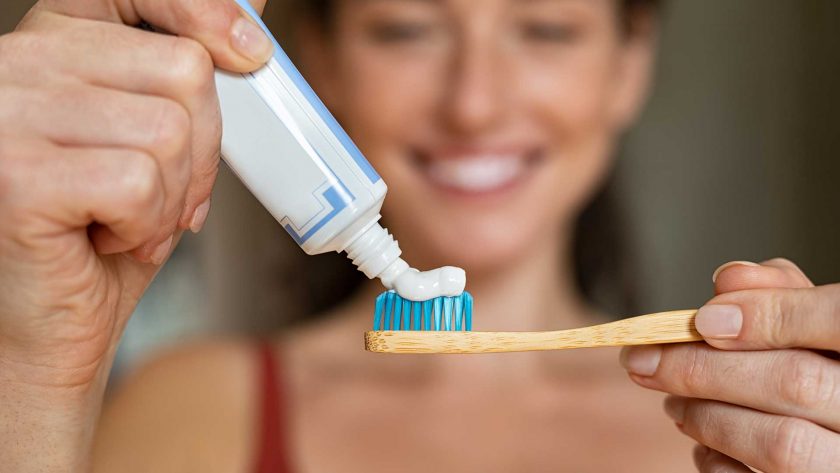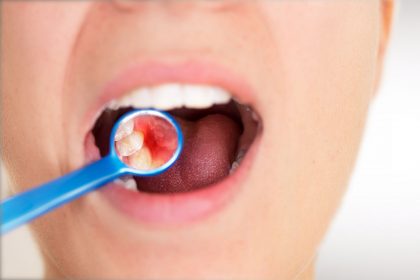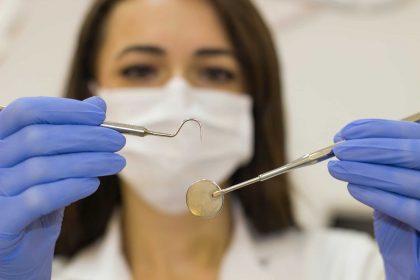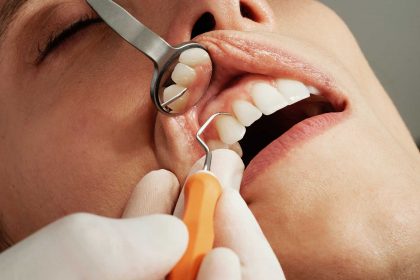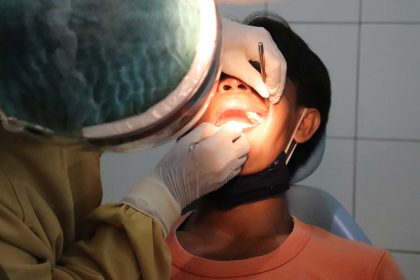Thousands of years ago, the best method we had for cleaning teeth was chewing on sticks. The first actual toothbrush was developed in China way back in the Tang dynasty, and today we have easy access to an endless array of manual and electric toothbrushes. Getting people to use their toothbrushes properly, though, can still be a chore.
The American Dental Association recommends brushing your teeth twice a day for two minutes each time. This is a minimum recommendation for “good” plaque removal. However, brushing your teeth for three minutes gives better — even “excellent” — plaque removal results.
If longer is better, can you brush your teeth for too long?
Plaque is a sticky biofilm teeming with bacteria, and it’s ever present in your mouth. When plaque settles on your teeth, these bacteria feed on sugars and starches in the food you eat and start to release cavity-causing acid.
The purpose of brushing your teeth is to prevent this plaque from sticking in place and hardening into tartar. Eww.
Studies have shown that brushing your teeth for two minutes does a pretty good job of preventing plaque buildup. Two minutes of brushing has been the standard recommendation from dentists since the 1970s. Other studies have shown that brushing your teeth for longer than two minutes removes additional plaque, but after three or four minutes you start to see diminishing returns for your efforts.
There’s not much point in brushing your teeth for longer than that, and you risk aggravating the gums and damaging your tooth enamel if you’re too aggressive with the brush.
How many times a day should your brush your teeth?
The standard recommendation is twice: Brush your teeth twice a day for at least two minutes each time. Since it generally takes plaque at least twelve hours to start building up on your teeth, twice a day is a good way to keep it from settling.
For best results, consider brushing your teeth first thing in the morning to remove biofilm, and again at night as you get ready for bed to wash the day out of your mouth.
For results that are even better than best, though, throw in a third brushing during the midday, at least an hour after lunch.
A third brushing lowers your risk of periodontitis, which has been linked to heart disease and other medical conditions.
Get your technique down and everything
As important as it is to get in those two minutes of brushing two or three times a day, it’s also important to do a good job at it. Here are a few suggestions:
- Soft bristles are better, as they can bend slightly to get beneath the gum line and they’re less likely to scratch the tooth’s enamel.
- Brush every surface of every tooth. That means the outside, the inside, and the chewing surface, and as much as possible the spaces between the teeth.
- Use a timer. Think about the four quadrants of your mouth — upper right, upper left, lower right, and lower left — and then spend thirty seconds brushing the teeth in each quadrant.
- Consider an electric toothbrush. Although studies haven’t shown much difference in effectiveness between electric and manual toothbrushes, electric brushes are much easier to use. Some of them even incorporate built-in timers to guide you as you brush.
- Change your toothbrush head every three to four months, or as soon as it show signs of wear. A frayed brush head is an ineffective brush head.
- You don’t need to press hard when you brush. A gentle massaging motion is enough to break up the plaque.
Beyond the toothbrush
Flossing is also very important for cleaning the hard-to-reach spaces between the teeth and beneath the gums. You should floss at least once per day.
I also love using an oral irrigator — aka water flosser — to finish things off. Even after brushing and flossing, I’m always amazed how an oral irrigator still manages to find and flush food from between the teeth and along the gum line.
REFERENCE
- PubMed: The effect of brushing time and dentifrice on dental plaque removal in vivo
- Saudi Journal of Oral and Dental Research: Evaluation of relationship between time of manual tooth-brushing and plaque removal
- Gov.UK: Delivering better oral health
- PubMed: Association between oral health behavior and periodontal disease among Korean adults
